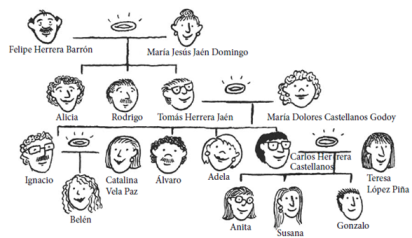Does this paragraph compare, contrast, or both?
(1) With the disturbing news that nearly all of the brains of deceased football players tested for chronic traumatic encephalopathy (CTE) indeed had this terrible brain disease, the National Football League and the Canadian Football League are taking steps to curb head hits on the field. (2) The new Canadian rules differ from the NFL’s in three ways. (3) The first difference is in their practice methods. (4) The CFL has barred players from full contact practices, meaning that players cannot ram into each other. (5) While Canadian players must wear helmets during practice, they do not wear protective padding, which makes them less likely to hit each other. (6) Americans, on the other hand, have not been as cautious; instead they have merely limited the number of padded, full-contact practices to fourteen during the regular season. (7) The second difference is time off. (8) The CFL recently added a third “bye week,” or week off, to its 18-game season to give players more time to recuperate. (9) The NFL, however, allows only one bye week in its 16-week season, giving its players less resting time. (10) Finally, while the CFL plans an ongoing evaluation of these new rules and their effects on player's brain health, the NFL says simply that it will consider the data collected by our neighbor to the north.
A) compares only
B) contrasts only
C) compares and contrasts
C) compares and contrasts
You might also like to view...
Dé el equivalente español de las palabras que aparecen entre paréntesis.
Si Carlos necesita dinero, yo espero que tú ____________________________. (lend it to him)
En familia.This is Susana's family tree. Read the following sentences and indicate if they are verdadero (true) or falso (false).?
?

Answer the following statement true (T) or false (F)
Faisons connaissance. Marguerite and Jennifer are getting to know each other. Complete their conversation with the appropriate form of the verbs given in parentheses.J: Je suis ici avec un groupe d'Américains et nous (1) __________ (étudier) le français ainsi que l'histoire, la culture et la musique françaises. C'(2) __________ (être) très intéressant. Et toi? Tu (3) __________ (avoir) quels cours à l'université? M: Moi j(e) (4) ________ (avoir) des cours d'anglais. Je (5) ________ (préférer) l'anglais américain, mais mes professeurs (6) ________ (parler) l'anglais britannique, alors avec mes amis, nous (7) ________ (regarder) la télévision américaine et nous (8) ________ (jouer) au football américain. J: Ah bon? Quelles
émissions est-ce que vous (9) __________ (aimer)? M: C'est stupide, mais on (10) __________ (adorer) Survivor! Et toi? J: Mes amis et moi, nous (11) __________ (ne pas aimer) cette émission! Nous (12) __________ (détester) même la télévision. Par contre, on (13) __________ (jouer) de la musique ensemble. M: Très bien! Bon, parlons de l'appartement. Il y (14) __________ (avoir) combien de pièces (rooms) dans l'appartement? J: Quatre. C'est parfait pour deux personnes. Tu (15) __________ (ne pas avoir) d'animaux (pets) et tu (16) __________ (ne pas fumer), donc il n'y a pas de problèmes. Excellent!(1) Fill in the blank(s) with the appropriate word(s).
The wealthier you are, the more likely it is that your home will be burglarized
Indicate whether the statement is true or false